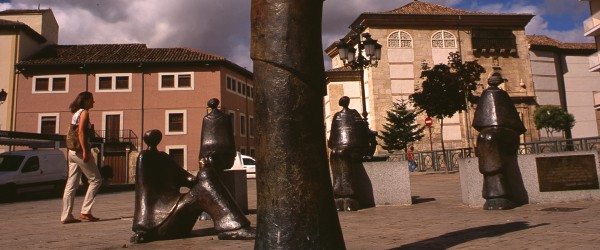The Studium Generale in Palencia, the first university in Spain
Which was the first university to exist in Spain? If you thought it was Salamanca or Alcalá de Henares, you'd be wrong. The first centre for higher education which was recognised and considered as such was the Studium Generale in Palencia (as it was known at the time), established in the early 13th century, and where eminent European masters would give classes.
In order to discover the origins of the university in Spain we need to go back to Palencia in the year 1212. This was the year King Alfonso VIII of Castile officially recognised the Studium Generale in Palencia, marking it out as an elite centre for higher education and granting an annual endowment for its maintenance. This had already began to occur in Europe with other similarly prestigious institutions such as Bologna, Oxford, Paris and Cambridge.
A little history
Although the institution was recognised by the ecclesiastical authorities in 1208, the establishment of the Studium Generale in Palencia in fact dates from the 12th century, as is evidenced by the fact that the founder of the Dominican order, Saint Dominic de Guzmán, was one of its students in 1184. From 1222 to 1227 Gonzalo de Berceo also attended the Studium Generale in Palencia, founded by Bishop Tello Téllez de Meneses, whom he names in his works.
The alumni from Palencia graduated with a bachelor's degree in Theology and the Arts after taking the two courses available at the time: the Trivium (Grammar, Rhetoric and Logic) and the Quadrivium (Arithmetic, Geometry, Astronomy and Music).
The Studium Generale in Palencia was also reputed for its supplementary legal studies, in which lessons were given by some of the most eminent scholars of the time. However, the death of Alfonso VIII in 1214 brought about the decline of the centre, which was exacerbated when his successor, Alfonso IX, decided to transfer the university to Salamanca in 1218.
Finally, the Studium Generale in Palencia ultimately disappeared in the face of competition from the universities of Salamanca and Valladolid. However, it set a precedent which would serve as an example for other historic universities such as that of Seville, Girona, Alcalá de Henares and Valencia.







